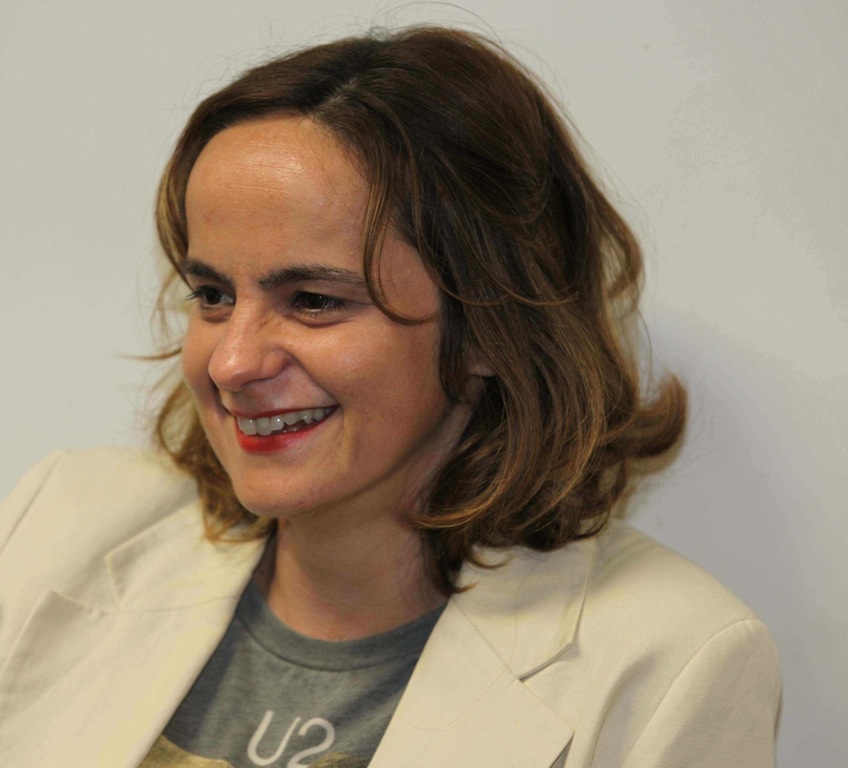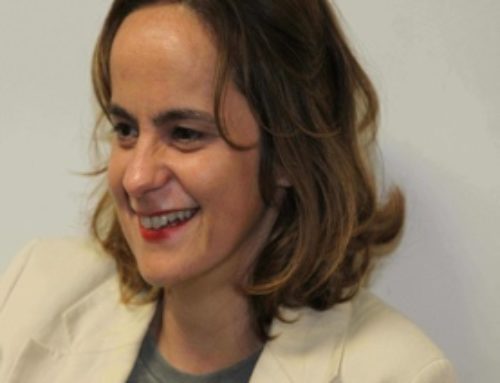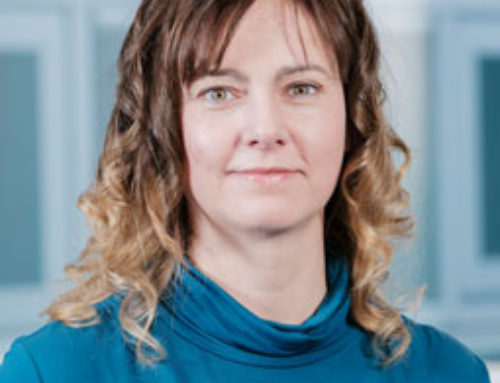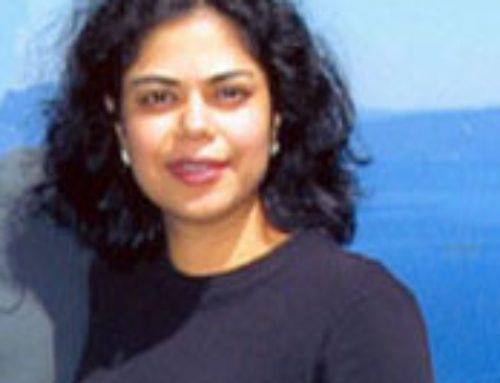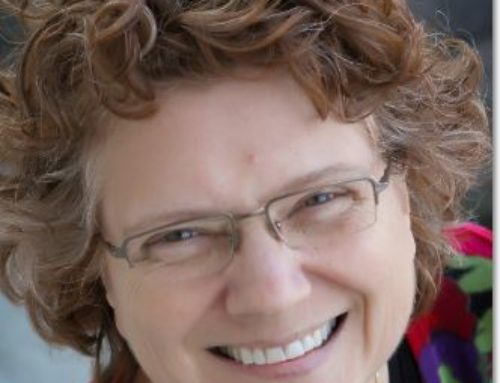HETL Note:
In this academic article, Drs Luísa Soares, Carla Vale Lucas, and Filipa Oliveira discuss how political, econmic, and social systems influence human identity and identity is further shaped within the context of local and global factors. The authors discuss the need for multicultural and global ciizenship education to develop students who can think critically about the world and their identity in the world.
Author Bio:
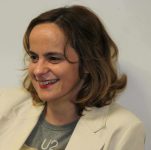 Luísa Soares is a Portuguese native from Madeira island, a psychologist, university professor and PhD in psychology. She is Assistant Professor of Psychology at University of Madeira and researcher at Larsys in Madeira Interactive Technologies Institute Director of Post-graduation studies on human aspects of technology at University of Madeira (UMa).
Luísa Soares is a Portuguese native from Madeira island, a psychologist, university professor and PhD in psychology. She is Assistant Professor of Psychology at University of Madeira and researcher at Larsys in Madeira Interactive Technologies Institute Director of Post-graduation studies on human aspects of technology at University of Madeira (UMa).
 Carla Vale Lucas is a psychologist at Psychological Counseling Service of Madeira University since 2009. She is an effective member of the Portuguese Psychologists Association and holds a degree in Psychology – Clinical Psychology from the University of Madeira. A Certified trainer and certified parent educator, she has been involved in research projects, and workshops targeted to different populations, to promote personal skills, as well actions for children that promote reading habits.
Carla Vale Lucas is a psychologist at Psychological Counseling Service of Madeira University since 2009. She is an effective member of the Portuguese Psychologists Association and holds a degree in Psychology – Clinical Psychology from the University of Madeira. A Certified trainer and certified parent educator, she has been involved in research projects, and workshops targeted to different populations, to promote personal skills, as well actions for children that promote reading habits.
 Filipa Oliveira is a psychologist at Psychological Counseling Service of Madeira University since 2009. She is an effective member of the Portuguese Psychologists Association and holds a degree in Psychology – Clinical Psychology from University of Madeira. Filipa is a postgraduate in Assessment and rehabilitation in neuropsychology. She has participated in several research projects and different workshops targeted a different population, addressing different topics, to promote personal development. She is also a certified trainer.
Filipa Oliveira is a psychologist at Psychological Counseling Service of Madeira University since 2009. She is an effective member of the Portuguese Psychologists Association and holds a degree in Psychology – Clinical Psychology from University of Madeira. Filipa is a postgraduate in Assessment and rehabilitation in neuropsychology. She has participated in several research projects and different workshops targeted a different population, addressing different topics, to promote personal development. She is also a certified trainer.
Having Roots and Wings at the Same Time and Considering Alternate Visions of the World: Insularity and World Citizenship
Luísa Soares, Carla Vale Lucas, Filipa Oliveira
University of Madeira, Portugal
Abstract
Developing mindful global citizenship among students towards engaging dissonance is a top priority in higher education. As a team of psychologists, teaching and working with students from an insular Portuguese University, “engaging dissonance” is a must have in our day-to-day work. So, we seek to help students to develop critical thinking and alternatives visions of the world. We aim to provide students with the possibility to have their own wings to fly, without borders in thought, but at the same time having roots, thus embodying the concept of a true citizen of the world. Also, we are concerned about the impacts of living on an island towards the way of thinking about the world, globally. In this article, we will reflect about these questions, particularly about insularity and the barriers (e.g. geographical and psychological) that stand in between the development of global citizenship; the importance of instilling practices of global citizenship among college students; and the role that psychologists and teachers in universities could play at this level.
Keywords: global citizenship, college students, insularity, mindset, universities, critical thinking
Issues of global concern are becoming part of our local experiences, which transforms significantly the everyday consciousness and identities of people (Beck, 2002). Indeed, we no longer can understand the human condition only nationally or locally, but we need to understand it also globally (Beck, 2002).
As stated by Barrie and Prosser (2004), being a citizen of the world is an attitude towards the world. It implies acquiring and developing global awareness, social responsibility, and civic engagement (Perry, Stoner, Stoner, Wadsworth, Page & Tarrant, 2013). The assumption of this posture is important for citizens to better adapt to a more complex and interconnected world (Galinova, 2015). Therefore, developing mindful global citizenship among students is a top priority in higher education.
As a team of psychologists, teaching and working with college students in an insular Portuguese University, “engaging dissonance” is a must have in our day-to-day work. We seek to help students develop critical thinking, develop alternative visions about the world, build and be able to defend arguments, develop digital literacy and debate / confront somehow inflexible opinions. Therefore, we aim to provide students with the possibility to have their own wings to fly, i.e. without borders in thought, but at the same time having roots, knowing who they are, where they come from, to better decide where to go, thus embodying the concept of being a true citizen of the world. Also, we are concerned with the possible impacts of living on an island towards ways of thinking about the world globally.
In this article, we aim to reflect about these questions, and the barriers that stand in between the development of a global citizenship, namely those that could come from being islanders (e.g. geographical and psychological barriers); the role that universities, psychologists, and teachers could play in instilling practices of global citizenship and promoting intercultural competence among college students.
This article is organized in four major parts. We start by reflecting on global citizenship and the need for a multicultural education, addressing the role of universities in this scope. Then we continue by outlining what it means to be an islander, thus reflecting about possible barriers that could appear through insularity. Posteriorly we present our experience, as islanders from Madeira’s Archipelago (Portugal), and as professionals working in higher education. We do this by first visiting both the history of the island and the Portuguese education system, finishing by outlining the efforts towards promoting a global citizenship among the student community of the local university.
Towards a Global Citizenship
As stated in Ashwill and Oanh (2009), global citizens think and feel themselves as part of something bigger than one’s culture or nationality. Global citizenship is not a static mindset. It is a dynamic worldview that comprises the sense of commitment with social, economic, and other issues, at different levels: local, national, and international.
A global citizen can think objectively and critically about his or her own country strengths and weaknesses. They do not simple accept ideas about their home country as being “the best” (Ashwill & Oanh, 2009). This liberates them from affective and cognitive limitations of nationalism, obstacles towards the development of globally competent citizens.
To Ashwill and Oanh (2009) when we talk about global citizenship, we talk about different aspects of the citizen identity: personal, social, spatial and temporal. Those different aspects taken together will help face the multiple challenges of nowadays. The personal aspect refers to the personal commitment to nurture a citizen identity among one’s other and with it a civic ethic by socially responsible habits and actions. The social aspect refers to the ability and willingness to work with other citizens. The spatial aspect of citizen identity requires citizens to see themselves as members of local, regional, national, and global communities. Lastly, the temporal aspects represent that citizens need to pay attention to past and present experiences, looking also towards the future.
As a member of global society it is important to develop the ability to work with others in a cooperative way, to take responsibility for one’s roles/duties within a society, to understand / tolerate cultural differences, to be sensitive towards and defend human rights, and to think in a critical and systemic way (Parker, Ninomiya, & Cogan, 1999). Furthermore, the willingness to solve conflicts in a nonviolent manner and to participate in politics at local, national and international levels is needed (Parker et al., 1999).
Consequently, a multicultural education is essential, since today’s students must be prepared to live and work either locally and/or globally in different cultural and political environments (Caruana, 2014).
Nevertheless, the current educational system poses some obstacles towards the development of globally citizenship (United Nations Secretary-General, 2012).
Traditionally, schools have been preparing students to succeed in exams and to complete each degree. The promotion of respect and responsibility across cultures, countries, and regions is not usually a priority. Values of peace, human rights, respect, cultural diversity, and justice are not embodied in curriculum agenda. Also, curricula and learning materials are not updated, reinforcing stereotypes, exacerbating social divisions, and fostering fear towards the difference, among groups or nationalities.
All this involves changing the way education is organized, making content more relevant to contemporary life and global challenges, introducing innovative ways of teaching and promoting learning styles and instigate global citizenship competencies over students developmental path and through educational strategies. Also, a change is needed in the mindset of students and in the way they define themselves and their role on the broader community. Thus, the education system should help students to understand and affirm the community culture. Furthermore, education should free them from the cultural boundaries, allowing them to create and maintain a civic community that works for the common good (NCSS, 1992). It also should offer students the intellectual tools to rethink and revise the identities they have, whether based in family, race, or ethnicity or in political, regional, religious, and ideological affiliations, and supporting them in constructing their own individuality (Fullinwider, 2001).
For that to happen it is important to develop global citizenship competencies such as multicultural understanding, empathy towards others, respect for diversity and acceptance of differences, inclusiveness, and critical thinking about the world (Galinova, 2015). Also, it is important to empower students with knowledge and skills to face the uncertain world, by fostering the ability to manage ambiguity and complexity, and solving problems in a creative way (Bosanquet, 2010).
Universities are cornerstones in this scope, since they are privileged places for knowledge and education, aimed at promoting future professionals and better citizens, able to critically think about the world and to find new solutions to global concerns.
Therefore, higher education institutions need to produce new pedagogical processes that contrast with the traditional pedagogy of higher education. One of the ways of doing this is by helping teachers expand their own skills and outlooks to better help students embrace new ways of seeing the world and helping them to modify and alter their initial identity package.
It is important to note, that when individuals are young, identity comes to them as a package (Fullinwider, 2001). As a person grows older, he or she cannot modify or alter this package unless he or she encounters alternative ways of living and imagine those alternatives. The person must imagine what the other individual may believe. This is only possible if the individual, first, becomes aware of alternatives and, secondly, tries them on, in experience or imagination, to see what they feel like (Mill, 1985, cited by Fullinwider, 2001).
Being an islander: What it Means and What Barriers Could Represent?
There are 550 million people living on islands, around 10% of the world’s total population (Baldacchino, 2006). In Europe, the ultra-peripheral regions have a total population of 3,8 million (1% of the population of the UE). The islands, in general, and the Atlantic islands, in particular, guarantee the diversity and the manutention of a European Union that is open, continental and maritime. Diversity is therefore the main characteristic of Europe (Valente, 2011).
Island scholars are interested in studying the possible influences and impacts of “islandness” on ecology, human behaviors and in other areas, as policy issues and economics (Baldacchino, 2004).
Islandness is a term that refers to some specific qualities of islands that distinguishes them from those of continents. This could be geographical (degree of separation from a mainland), social (islander identity and sense of place), political (often expressed through tensions between autonomy and dependence on a mainland jurisdiction), demographic (i.e. high rates of emigration), historical (as sites of conquest, assimilation and colonialism); or economic (i.e. limited resources and economies of scale, and high transportation costs) (Hepburn, 2010).
Baldacchino (2004) states that islands cultures are dynamic, since they are open to the exterior and to visitors as the tourists. Also, during their history, they have assisted in a multiplicity of migratory movements. Due to their maritime position they were used as strategic points in the discoveries, that allowed the cohabitation of different people (Espínola & Cravidão, 2014).
The concept of insularity is frequently used in this context. However, it is difficult to define it (Marshall, 1999). Insularity describes the physical boundedness of an island, which is surrounded by water. Accordingly to Hay (2003 cited in Hepburn, 2010), the physical boundedness leads to psychological distinctiveness, having an effect on its inhabitants. It produces “bounded” identities. Therefore, insularity means in some way being more distant from external information. External walls prevent contact with customs and ideas different from their own. As a result, insular people usually know and experience limited physical or social space in which they move, which narrows or limits the points of view, a view that extends no further than the limits of the parish. But the walls faced are not only external (Fullinwider, 2001). They are also in the “minds” that block new information from having effect. Fullinwider (2001) states we can characterize insular people as being somehow incurious, intolerant, and illiberal. This idea is somehow controversial.
Baldacchino (2004) alerts us to the danger of this concept of insularity, as it has somewhat negative meaning of isolation, loneliness, separation, distance, and imprisonment. This does not always correspond to reality. Baldacchino (2006) underlines that an island can be both paradise and prison, both heaven and hell. Any island and islander is a contradiction between “here” and “there”, between negotiating a balance between roots and routes.
Following this line of thought, authors like Espínola and Cravidão (2014) reinforce that islands have both positive and negative aspects, as they face daily challenges. However, is not because of those aspects that we need to grab a negative idea about the islands and insularity.
Therefore, we might say as stated by Marshall (1999), that insularity is not only a geographical concept but also a state of mind. The impact of living surrounded by water and the feeling of being insular does differ from person to person. The fact of living in a place surrounded by water, psychologically does not produce the same effect in every individual, as the feeling of being insular changes between people. Note that the author also states that insularity has incorporated a strong sense of community identity combined with a spirit of independence and flexibility.
Taken all together, we could say that islanders are not necessarily people who are geographically surrounded by sea, but a person who says that the sea geographically surrounds them, or that they belong to a human group where that is the case (Baldacchino, 2004). As a result, the barriers to global citizenship, if any, could come not from being an insular, but from the state of mind that builds walls in this regard. Those are the walls that should be addressed by education.
Madeira’s Archipelago and Its Education System
Madeira is a small Portuguese archipelago, located in the North Atlantic Ocean, which includes the islands of Madeira, Porto Santo, Desertas and Selvagens (these last two non-habitable).
Madeira’s Archipelago is an ultra-peripheral region of European Union. The capital of Madeira’s Island, Funchal, is almost one thousand kilometers distant from the mainland. It is closer to Africa than Europe but surprisingly it is still a European territory.
Rodrigues (2014) states that the identity of Madeirans has its grounds in the insularity, the migration, the experiences from the diaspore and ideas about autonomy (only achieved in 1976). To the author, the history of Madeira happened both from the inside and the outside.
To understand a little better the Island and its population, we need to go to its roots. Since the beginning, Madeira Island is a port of arrivals and departures (Rodrigues, 2014). When Madeira and Porto Santo were discovered, no one was living there. The first Madeirans came from different lands from Portugal. Silva (2014) states that the ones that first inhabited the island had already a “spirit of departing”, which seems to be inseparable from our past, present and future.
As an ultra-peripheral island, Madeira faces different challenges, considering its remoteness and isolation from the mainland, the size, and its fragmentation (archipelagos).
Madeira’ island is a mountainous island, with valleys and streams, that has imposed additional constraints in terms of environmental aspects, but also on the transportation of goods, water, and people. It presents limitations such as the amount of usable land on the main island and of terrain, which is unfriendly to agricultural production on Porto Santo, as well as presenting some vulnerability to natural disasters. Also, until the last decades of 20th century, the road network was very rudimentary (Pereira, 1989). This caused enormous isolation and delay in the economic development of the populations, mainly in the north of the Island, but also had influences in the psychological traits of the people living there. Moreover, the rates of uneducated people were high.
The increase of visitors in Madeira due to tourism, at the end of the 19th century, had an important influence on the development of a new road network. Roads, viaducts, bridges, and tunnels were then built.
However, the difficulties faced by locals to survive, required many to leave the island. With the technological advances it was possible to diminish the sense of physical distance imposed by the sea, for instance by helping to reunite families (Pimentel, 2013). To have an idea of the challenges faced back then, television was available on the island from 1972, and it was not available to everyone.
Nowadays, telecommunications, namely internet and television, and tourism, one of the main sources of income, allows the cohabitation of different people, guiding the island towards globalization. Madeira’s culture is becoming increasingly dynamic. However, the opening to the exterior imposes new challenges to the population, in adaptation to this new world and its requirements.
Vieira (2014) states that the island always lived between the ambiguity of being open to the exterior and being closed. Sea, more than land, in his opinion, was always a door to the world, thus erasing the idea of isolation and being abandoned, an idea that is self-created by men.
Considering all this, to construct a consistent future, it is crucial to preserve the memory, the history, and link them with the new knowledge (Rodrigues, 2014, Silva, 2014, Vieira, 2014), opening to the exterior and adjusting to a new world.
Portuguese Education System and The University of Madeira
To Crossley et al. (2009), knowledge economies rely on highly educated citizens to innovate, collaborate, research and adapt within an increasingly complex world. The quest of the education system is then to overcome handicaps and know how to transform certain constraints into advantages.
In Portugal, universities have been regarded as a privileged means of promoting development and strengthening national identity and self-determination. The establishment of universities was an important milestone in the development of education in Portugal, which followed the general education movement in Europe in the thirteenth century (Soares & Faria, 2015).
However, from 1926 to 1975, due to the dictatorship that ruled Portugal, education suffered a setback, as it was not available for all children and young people. As a result, higher education reflected this late development, according to Soares and Faria (2015). At that time, university was reserved for social and economic elites. When the dictatorship ended in 1974, some private universities were created, which increased the availability of courses allowing a greater number of students to enter the higher education system (Soares and Faria, 2015).
Free and compulsory education was then instituted. It began with a required six academic years. Later, in 1986, nine years of compulsory school was implemented which in 2005 was increased to 12 years. Since then, the university degree has been considered a means to have professional and personal success, which motivates people to enter the university.
Nowadays, Portugal has one of the highest growth rates of participation in higher education among the European Union countries, with an approximate value of 6% growth per year. Although the percentage of students attending higher education is increasing, participation rates can by no means be regarded as high (OECD, 2007).
The University of Madeira is the most recent public university created in Portugal, in 1988, with only a few courses. Only in 1990 did the variety of courses available in the university expand. If the university did not exist on the island, many locals would never have the chance to invest in their higher education, due to economic and motivational constraints in pursuing studies on the mainland.
As with any university in a small state or island, there are advantages and disadvantages (Crossley et al., 2009). One of the major demands is to appeal to students and professors, local and foreigners, to enrol in the university. However, this is one of the aims of the university – to be cosmopolitan, open to the exterior.
Currently, University of Madeira has an approximate enrolment of 3,000 students, with students of different ages, including mature-age students. Those students are mostly locals, or from the nearby island of Porto Santo. The number of foreign students is around five percent.
Cultural and Local Values and Their Influence in the University Dynamic
Cultural and local values have a powerful influence in the university dynamic as well as in shaping students’ attitudes and behaviours towards society and the world. Even if there are no studies (to our knowledge) about the personality traits of Madeirans, our daily work with students, mostly locals, lead us to reflect on some major characteristics. The contradictions that were described by Baldacchino (2006) seem to be printed in our own identity.
Madeirans are nice and calm people. They know how to welcome. However, non-locals frequently say that they are also closed people and that is hard to mingle with locals, to become part of a group. This happens not only with people that come from outside the island, but also from the same island. The closeness is seen, for instance, in the difficulties that students face while working with different groups at university.
All these characteristics make us question if locals are willing to share the traditions with others and allow themselves to be molded by new circumstances and new arrivals, or if in fact they present resistance towards what is different and new.
Curiously, some of the characteristics we found in our population when compared to mainlanders, namely being more introverted and less open to the experience, are also those found in a study conducted within Italian Archipelagos and Mainland (Ciani, Capiluppi, Veronese, & Sartori, 2007). In their study, it was found islanders to be more introverted, conscientious, and emotionally stable than mainlanders and less open to experience. Also they found that emigrants from the islands when compared to those that had never left the island were significantly more extroverted and open to experience. The (Ciani, et al., 2007) study was designed to compare only people coming from the same latitudinal, linguistic, cultural, and ethnic group, all sharing the same social norms, historical background, religious beliefs, education system, media availability, and other facilities of the mainland.
Working with our students, in higher education, we can also see dichotomic characteristics. We have a considerable percentage of students that are close, that do not actively participate in classes, do not engage in critical thinking and do not question. We risk saying, they present themselves as being somehow acritical, uncurious, with a lack of proactivity. They also show some resistance to change. An example of this, is when they are presented with different ways of conducting classes, with reflective exercises, they feel lost, unable to share their thoughts, and formulate critical opinion. Also, they seem to have difficulties in questioning the world and the future, almost being resistant to thinking of alternative visions.
Many of those students chose to not study outside the island (for different reasons, economic and/or motivational). A large percentage of our students are from interior localities of the region, with low incomes. Between high school and college there seems not to be many changes. They tend to move themselves in the same surroundings, they mingle with the same groups, and see higher education as a “must be” in terms of the education continuum, not willing to take the most of it, and using all the experiences provided to develop further their abilities as citizens.
If there is a high percentage of students with those characteristics, there is also a percentage of students, smaller though, that are more open to new experiences. They participate in projects, in and outside of university; are actively involved with the community and build their academic path in parallel with other life domains. A later section will address some examples of projects in which they are participating.
Furthermore, among Madeirans, we can find two extreme perceptions about what it is to be an islander. These extremist perceptions can undermine the development of mindful global citizenship. Taking again Baldacchino’s (2006) words, on one hand, living on an island could be seen as a “paradise” and on the other hand, as “hell”. We find a strong sense of “we”, defending the community against “them” (them as “mainlanders”). This can reflect some nationalism, and probably is linked to the heritage – the history, where the island and the population felt abandoned from the mainland. On the other extreme, we find people that think nothing good comes from living on an island, negatively comparing all that exists to what exist in other states. This leads us to think there is a need for developing an awareness of one’s own culture and cultural identity, in a realistic manner.
In settling on these grounds, a question arises: Are students (especially those in higher education, with whom we work) recognizing themselves as citizens of the world, thinking and acting as such? Are these students able to think outside and beyond the walls that they know comes from insularity?
We do not have quantitative data to analyse and answer these questions. Nevertheless, they open hypotheses that need further assessment. In this regard, and beyond the scope of the article, it would be interesting to assess perceptions of students – islanders studying in the region, islanders studying abroad, and mainlander’s students –, to acknowledge what they think about the future and their role in a global world, using, for instance, a grounded theory as a research method, to help develop a theory through the analysis of the data collected.
Still, the characteristics we find on our own college students lead us to think thoroughly about the steps that should be taken to go beyond the walls of insularity (an insular state of mind), towards a multicultural education.
University of Madeira: Small Steps Going Beyond the Walls of Insularity
As a small state university, day by day, we try to become more open to the exterior – more cosmopolitan. For that to happen we need to facilitate the development of intercultural competence in students and prepare them for communicating effectively in the global workplace after graduation. This is accomplished through the implementation of different initiatives in a continuum between curricular and extra-curricular activities (Dimitrov, Dawson, Olsen, & Meadows, 2014).
In our context, practical classes, with less students, are gradually replacing lectures that were taught to a large number of students. Students and teachers have had to adapt to a new model of teaching-learning. Now, the curricula at the university is more open and diversified, with the aim of improving the skills and increasing mobility of human resources. With the implementation of the Bologna Process, university teachers have the opportunity to reflect on their teaching practices and to become trainers of citizens with knowledge, competencies, and the ability to manage conflict, solve problems, be creative and innovative (Sousa, 2011). However, the resistance of some teachers and staff personnel to this change and the introduction of new parameters into the teaching profession have made the process very slow and, sometimes, lead to results that may not have reflected the original intention (Soares & Faria, 2015). Most classes are still taught in the most conservative way, where memorizing contents and reproducing them is the major form of evaluation of students. These issues need to be upgraded into a new form of teaching new skills to students, which are important in several areas of scientific knowledge, like social sciences, human computer interaction, and biology, among others (Soares & Faria, 2015).
Besides these pedagogical processes that urgently need to be addressed, universities should promote initiatives aimed at developing and training such competencies in students, while promoting a global awareness and consciousness. For that to happen they should help students to get in touch and look for sources of information and experiences outside their immediate environment and to formulate views and ideas even the ideas they oppose to (Fullinwider, 2001; Galinova, 2015). They should promote diversity in arguments and to coach students to elaborate their arguments and to listen the contra-arguments. This is not an easy task to do, but necessary. This ability requires flexibility and brings great intellectual development to a youthful mind.
In this scope, as a team of psychologists, working in a counselling unit for college students, we try enabling students to cope with the challenges and demands of today’s world and to promote a critical thinking through different initiatives (workshops, open days, between others).
Technically we aim to achieve this by:
- Questioning students with encouraging questions (question-driven, not answer-driven);
- Selecting smart and relevant content to the discussion;
- Developing a theme with contentious issues and encouraging debate, so that students learn how to form their own opinions and demonstrate them with respect the others;
- Offering resources, indicating books / texts / films that address the issue and contextualize them;
- Aligning expectations: stating what we expect from them and asking what they expect from us;
- Thinking of the future and the career in a proactive way;
- Instilling team work: establishing open dialogue, communication, and discussion between the different perspectives, giving equal weight to each individual perspective and relating them to each other. This should be promoted since kindergarten;
- Allowing students to evaluate each other.
Thus, we moderate, mediate, relate and associate arguments and sometimes take a 3rd point of view in the discussion. People who tend to be critical thinkers tend to have an open mind to different and new ideas, in addition to being rational, reasonable, and collaborative. They understand that to get the best solution one should work as a team and forget differences and prejudices.
Examples of such initiatives / projects are: Workshop “From where I come… to where I’m going”; Program “To become a better person and a better professional”; Campaign “Do you think your future and career will be offered to you? Think again. Take the step. Undertake the control”; Workshop “How to work better in teams”; between others. A new project will be implemented in the next academic year, named “Invest in you! Increase your competitive advantage in the workplace”, which aims to put into work the proactivity of students, on building their future, but also allowing them to mingle with local or foreign students, sharing the learning process and promoting team work.
Moreover, the university has been progressively developing initiatives aimed at creating bridges with the outside world and, consequently, fostering multicultural awareness as well as multicultural experiences, opening spaces for dialogue and experiential learning. Examples of such initiatives are the increased participation in exchange programs for students, teachers, and researchers (i.e. Erasmus +; European Voluntary Service; Programs as Sócrates, Almeida Garrett, Luso-Brasileiras Scholarships). Another example that helps provide cultural understanding and self-development, is the creation by local students of the Madeira Erasmus Student Network, to help foreign students to better adapt to the island and its traditions.
Moreover, the Academic Association of University of Madeira, that represents and supports the college students, develops several activities in this regard. Among those activities is a cultural project named “History Tellers – Walk with real stories” (facilitated by locals and foreigners), which aims to raise awareness about the cultural heritage of Funchal. This project, as suggested by Dimitrov et al. (2014), seems to be important as it helps to improve the awareness of one’s own culture and cultural identity, but also helps to acknowledge how they are perceived by others (non-locals) and how they influence cross-cultural interactions.
Beyond all this, a good example of how an island in the Atlantic Ocean in the South Europe context can create educational and research bridges with all over the world and bring the natural isolation of the island to something less salient, was the creation in 2009 of the Madeira Interactive Technologies Institute (M-ITI). M-ITI is linked to University of Madeira, and it was established as an associated independent non-profit R&D (Research & Development) organization. The institute is founded by University of Madeira, Madeira Tecnopolo S. A. and Carnegie Mellon University. M-ITI operates in the interdisciplinary domain of human-computer interaction encapsulating contributions from computer science, psychology and design. The aim is to address and engage in important scientific and technological challenges that are both relevant to development of Madeira, University of Madeira, and society in general, and have significant economic impact. The research mission of this institute is to expand understanding of human experience and interactive technologies through basic and applied research that is innovative and responsive to manifest real-world needs using multi-disciplinary collaboration drawing on varied perspectives.
The examples of experiences given here aim to promote the awareness and understanding of cultural differences and the recognition of the validity of different belief systems, which according to Bennet (1993), are key elements in the development of intercultural competence. Also, they lead to an understanding about the limits of one’s knowledge, thus leading to seek information about expectations in a new culture (Spitzberg & Chagnon, 2009), which is another important attitudinal component of intercultural competence.
Final Remarks
No man is an island. Different social and political systems, local community and global community influence identity. With this in mind, we started the article by reflecting upon the need to develop a multicultural education and global citizenship. Considering our own reality, as islanders, and the daily observation of our college students, it is crucial to develop a global citizenship mindset that goes beyond any physical or psychological walls.
In fact, being insular could put some additional constrains on becoming a citizen of the world, but does not need to be a handicap in this regard. In fact, as Rodrigues (2014) state “To be Madeiran is to be universal”, considering our own history.
Therefore, it is important to exercise, among insular college students, a proactive, responsible, and participative global citizenship, driven for the practice of social good to the global community. We need to ask students to think, argue and act’ out alternative visions of the world (Hanson, 2010, cited by Bosanquet, 2010). This is the way to create a true citizen of the world, who has roots and wings at the same time; a citizen that is not an island, who is able to critically think beyond the geographic and psychological walls, thus developing their own identity, locally and globally.
References
Ashwill, M., & Oanh, D. T. H. (2009). Developing Globally Competent Citizens: The contrasting cases of the United States and Vietnam. In Darla K. Deardorff (Ed.) The SAGE Handbook of Intercultural Competence (pp. 141–157). United Sates of America: SAGE.
Baldacchino, G. (2004). The coming of age of island studies. Tijdschrift Voor Economische En Sociale Geografie, 95(3), 272–283. doi: 10.1111/j.1467-9663.2004.00307.x
Baldacchino, G. (2006). Islands, island studies. Island Studies Journal, 1(1), 3–18. doi: 10.1111/j.1467-9663.2004.00307.x.
Bennett, M.J. (1993). Towards ethnocentrism: A developmental model of intercultural sensitivity. In R.M. Paige (Ed.), Education for the Intercultural Experience (pp. 21-71). Yarmouth, ME: Intercultural Press.
Barrie, S., & Prosser, M. (2004). Generic graduate attributes: Citizens for an uncertain future. Higher Education Research & Development, 23(3), 243-246. doi: 10.1080/0729436042000235373
Beck, U. (2002). The Cosmopolitan Society and its enemies. Theory, Culture & Society, 2002, 19 (1-2), 17-44. doi: 10.1177/026327602128931206
Bosanquet, A. (2010). Higher Education guarantees global citizenship, or does it? In Proceedings of the Enhancing Learning experiences in Higher Education International Conference, University of Hong Kong. Retrieved from http://www.cetl.hku.hk/conference2010/pdf/Bosanquet.pdf
Caruana, V. (2014). Re-thinking global citizenship in Higher Education: from Cosmopolitanism and International Mobility to Cosmopolitanisation, Resilience and Resilient Thinking. Higher Education Quarterly, 68 (1), pp 85-104. doi: 10.1111/hequ.12030
Ciani, A., Capiluppi, C., Veronese, A., & Sartori, G. (2007). The adaptive value of personality differences revealed by small island population dynamics. European Journal of Personality, 21(1), 3–22. doi:10.1002/per.595
Crossley, M., Bray, M., Packer, S., Colin, M., Martin, M., Atchoaréna, D., & Bainton, D. (2009). Education in the small states of the commonwealth: Towards and beyond global goals and targets. The Round Table, 98:405, 731-751. doi: 10.1080/00358530903371429
Dimitrov, N., Dawson, D., Olsen, K., & Meadows, K. (2014). Developing the Intercultural Competence of Graduate Students. Canadian Journal of Higher Education, 44(3), 86–103.
Espínola, P., & Cravidão, F. (2014). A ciência das ilhas e os estudos insulares: breves reflexões sobre o contributo da geografia. Sociedade & Natureza, 26(3), 433–444. doi:10.1590/1982-451320140303
Fullinwider, R. (2001). Multicultural education and cosmopolitan citizenship. International Journal of Educational Research, 35, 331-343. doi: 10.1016/S0883-0355(01)00028-3
Galinova (2015). Promoting Holistic Global Citizenship in College: Implications for Education Practitioners. In R. Williams & A. Lee (Eds.), Internationalizing higher education: Critical collaborations across the curriculum (pp. 17-34). Rotterdam: Sense publishers.
Hepburn, E. (2010). A Comparative Analysis of Island Region Autonomy. In Annual Meeting of the Canadian Political Science Association, Concordia University, Montreal, 1-3 June 2010. retrieved from https://www.cpsa-acsp.ca/papers-2010/Hepburn.pdf
Marshall, J. (1999). Insiders and outsiders: the role of insularity, migration and modernity on Grand Manan, New Brunswick. In Russel King and John Connel (Ed.), Small Worlds, Global Lives Island and Migration (pp. 95–114). London: Pinter.
NCSS (National Council for the Social Studies) (1992). Curriculum guidelines for multicultural education. Social Education, 55, 274–294.
OECD (2007). Reviews of National Policies of Education – Tertiary Education in Portugal. Paris: OECD.
Parker, W. C., Ninomiya, A., & Cogan, J. (1999). Educating World Citizens: Toward Multinational Curriculum Development. American Educational Research Journal, 36(2), 117. doi:10.2307/1163536
Pereira, E. (1989). Ilhas de Zarco, volume II (4.ª edição). Funchal: Câmara Municipal do Funchal.
Perry, L., Stoner, K., Stoner, L., & Wadsworth, D. (2013). The importance of global citizenship to higher education: The role of short-term study abroad. British of Education, Society & Behavioral Science, 3(2), 184-194. doi: 10.9734/BJESBS/2013/2910
Pimentel, A. (2013). Identidade, Globalização e Açorianidade (Dissertação de Mestrado em Estudos Interculturais: Dinâmicas Insulares). Universidade dos Açores, Portugal.
Rodrigues, P. (2014). Da Madeirensidade: contributo para uma reflexão necessária. Retrieved from https://www.academia.edu/26530453/
Silva, G. (2014). Projeção da Madeira no mundo: Política e cultura das diásporas. In José Eduardo Franco and Cristina Trindade (Ed). Que Saber{es} para o século XXI? História, cultura e ciência na Madeira (pp. 487–496). Lisboa: Esfera do Caos Editores; Agência de Promoção da Cultura Atlântica.
Soares, L. & Faria, C. (2015). South Europe Higher Education: Portugal and its Peripheral Regions. In P. Blessinger and J. Anchan (Eds), Democratizing Higher Education: International Comparative Perspectives. New York: Routledge.
Sousa, I. (2011). The Bologna Process and changes in Higher Education: a study in the polytechnic Portuguese higher education. Ph.D Thesis, University Lusófona of Humanities and Technology, Lisbon, Portugal.
Spitzberg, B., & Chagnon, G. (2009). Conceptualizing intercultural competence. In D. Deardorff (Ed.), The SAGE handbook of intercultural competence (pp. 2–53). Thousand Oaks, CA: SAGE.
United Nations Secretary-General. (2012). Global Education First Initiative – an initiative of the United Nations Secretary-General. New York. Retrieved from http://www.globaleducationfirst.org/files/GEFI_Brochure_ENG.pdf
Valente, I. (2011). Pensar uma outra Identidade Europeia: marítima, insular e ultraperiférica. Debater a Europa, (4), 18–30.
Vieira, A. (2014). Nova história económica da Madeira. Lisboa: Esfera do Caos editores.
This feature article was accepted for publication in the International HETL Review (IHR) after a double-blind peer review involving independent members of the IHR Board of Reviewers and two revision cycles. Accepting editor: Dr Charlynn Miller.
Suggested citation:
Soares, L., Lucas, C.V., Oliveira, F. (2017). Having roots and wings at the same time and considering alternative visions of the world: Insularity and world citizenship. International HETL Review, Volume 7, Article 5, https://www.hetl.org/having-roots-and-wings-at-the-same-time-and-considering-alternate-visions-of-the-world-insularity-and-world-citizenship
Copyright 2017 Luísa Soares, Carla Vale Lucas, and Filipa Oliveira.
The author(s) assert their right to be named as the sole author(s) of this article and to be granted copyright privileges related to the article without infringing on any third party’s rights including copyright. The author(s) assign to HETL Portal and to educational non-profit institutions a non-exclusive licence to use this article for personal use and in courses of instruction provided that the article is used in full and this copyright statement is reproduced. The author(s) also grant a non-exclusive licence to HETL Portal to publish this article in full on the World Wide Web (prime sites and mirrors) and in electronic and/or printed form within the HETL Review. Any other usage is prohibited without the express permission of the author(s).
Disclaimer:
Opinions expressed in this article are those of the author, and as such do not necessarily represent the position(s) of other professionals or any institution. By publishing this article, the author(s) affirms that any original research involving human participants conducted by the author(s) and described in the article was carried out in accordance with all relevant and appropriate ethical guidelines, policies and regulations concerning human research subjects and that where applicable a formal ethical approval was obtained.

